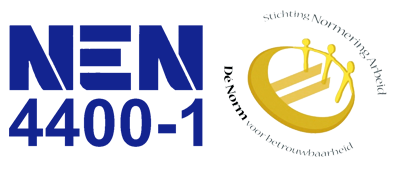5 soft skills for IT professionals
While mastering technical skills is essential for any position within the IT sector, strong soft skills for IT professionals are indispensable. These skills ensure that you can perform your role well and contribute to the success of an organization.
But which soft skills are really important to master as an IT professional? And how do you substantiate these skills when applying for a new IT position? We describe the 5 most important soft skills for IT professionals.
What are soft skills?
Soft skills are skills and personality traits that relate to your working method and the way you interact with other people (both professionally and privately). A characteristic of soft skills is that they cannot be directly demonstrated with, for example, diplomas or work experience. They are often closely related to your character.
Why are soft skills important?
Soft skills play a key role in understanding how a person interacts with colleagues, performs work-related tasks, communicates, and builds relationships. The way in which you carry out these matters is essential for an organization to assess to what extent you as an IT professional can successfully fulfill your role.
It is therefore important that you can indicate what your strongest soft skills are during the application procedure. A good substantiation with accompanying examples shows that you master the skills. This allows you to distinguish yourself from other professionals.
5 important soft skills for IT professionals
1.Communicate
Good communication skills are perhaps the most important soft skills. They are at the top of this list for a reason. Because everything stands or falls with communication. That is why it is important to master these skills well.
As IT professionals you often work in a team and you are in frequent contact with different parties. You must therefore be able to express yourself excellently in word and writing. It is also important that you take into account who you are communicating with and that you adjust your message accordingly. Listening is also an essential part of communication. By listening carefully to colleagues, customers, and partners, you show that you are involved and interested.
Don’t be afraid to give clear feedback. By doing this in a respectful way, you can show that you care about colleagues and customers. Ask for feedback yourself. You can see this as a reflection of your performance and use it to improve yourself.
In addition, giving a convincing presentation is a strong communicative skill with which you can show that you can transfer knowledge. Think, for example, of a pitch for a manager or a customer.
2. Collaborate
When working together well, the joint result is central. Even if as an IT professional you largely carry out your work alone, you are often part of a team. This means that you have to regularly consult with colleagues, supervisors, and customers.
By showing interest in the people you work with, you get to know them better. You may discover new interfaces that will make working together more smooth.
The basis of collaboration is listening to others. Respect the opinion and input of others and take a critical look at your own beliefs. When you realize that you can learn a lot from others, working together only becomes easier and more fun. An advantage of good cooperation is that together you can achieve goals faster and come to a solution sooner.
3. Creativity
As an IT professional you have to be original and inventive. It often happens that problems cannot always be solved with a standard approach. So you will sometimes have to think outside the box and rely on your creativity.
When you want to solve a problem, it is good to think ahead. Look at what can go wrong, consult with parties involved, collect data and analyze this data to arrive at the best solution.
4. Flexibility
A flexible IT professional has great adaptability. It is possible that you work with a deadline that you are not likely to meet. How do you deal with this, what steps do you take and what are your priorities. These steps require a flexible way of working.
It is a strength if you do not focus too much on the problem but can show that you are looking at the next steps. This also includes your creativity, communication skills and collaboration skills. It is important that you keep an eye for detail and learn from setbacks
5. Enterprising
Whether you start as a service desk employee or as a project manager. It is always good to be proactive. Take initiative and anticipate. By taking on responsibilities, you show that you are involved. You also work on your personal development.
It is good to monitor trends and developments in your field. See how you can apply these within your organization and how they affect your work. Not only now, but also in the long term.
Mention soft skills on your resume
Mentioning your soft skills on your resume is now almost indispensable. It gives you the opportunity to distinguish yourself from other professionals. But when everyone claims to have the same skills, it’s important that you make the difference. With good substantiation and an example you immediately have an advantage. Therefore, always explain in a number of short sentences why you master certain soft skills. You can do this, for example, in your profile.





